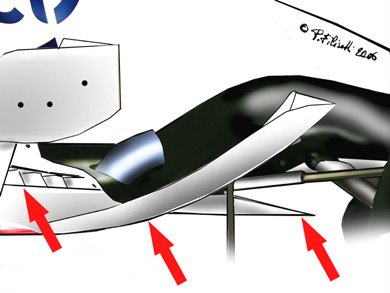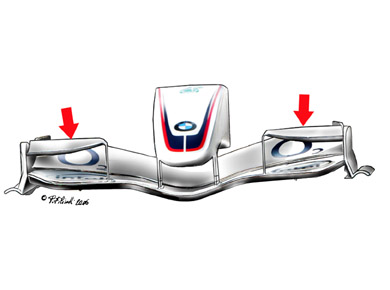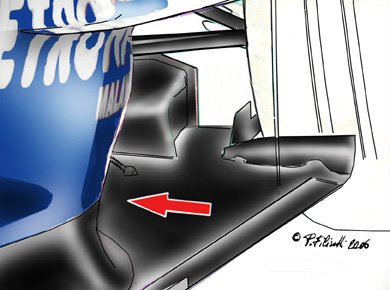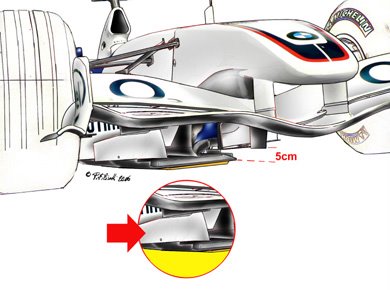Monday, February 27, 2006
F1: Technical Analysis Pre-2006 season : BMW

The area close to the rear wheels shows a strong resemblance to the previous Sauber C24 in many details, even if the bodywork is narrower close to the transmission. The notably similar elements are (left arrow) the venting gills on top of the sidepods (right in front of the short exhaust pipes), (middle arrow) the big flip-ups in front of the rear wheels, which now feature a vertical lip, and (right arrow) the triangular horizontal fin, whose function is to split the airflow to lessen its impact on the rear suspension elements.
Viewed from beneath the front of the car, it is apparent how the area (circled) around the front barge boards is aerodynamically 'clean' - the airflow approaching it is not disrupted by any of the suspension elements, despite the fact that for 2006 the bottom of the boards must be 5cm higher than before. This is made possible by adopting a 'no-keel' solution for the front suspension, attaching the lower wishbones directly to the body. Also visible is the way the nose cone drops down noticeably in comparison to last year's car, sporting very low front wing pillars.

BMW Sauber F1.06 - double-decker front wing
At the F1.06's post-launch test session in Valencia, BMW Sauber immediately started development of the new car's aero package, trialling different versions of the front wing. The latest used was one sporting a double profile, following the concept introduced last season by Renault and subsequently followed by many other teams. This solution seems able to provide additional downforce, but with a proportionally low increase in drag, and is very likely to be used when the season starts.

